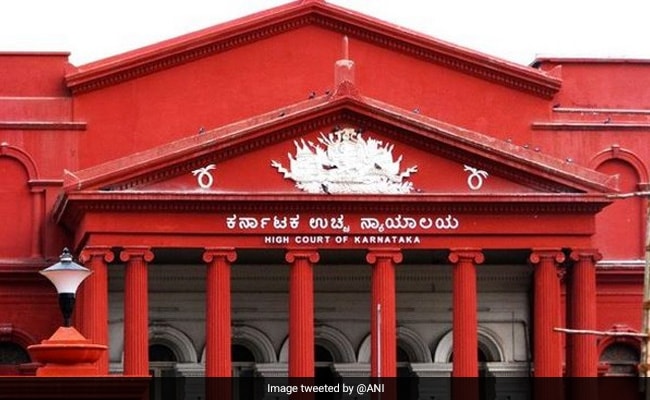
The view taken by the trial court is wholly unreasonable, said Karnataka High Court. (File)
Bengaluru:
The High Court of Karnataka has sentenced 10 people on seven counts with sentences ranging from two months to one year for assaulting members of Schedule Castes for complaining against upper caste people. All the accused from Dunda village in Tumakuru district were earlier acquitted by a Trial Court in 2011.
Overturning the lower court verdict and refusing the contention of the accused for a lenient view, the High Court said, “This Court cannot lose the sight of the fact that without any justification, the accused have chosen to enter the ‘Harijan’ colony and indiscriminately assault the complainant and others for the simple reason that two of them approached the police and complain against accused No.1.”
A complaint had been filed by members of the Scheduled Castes against one DR Sudeep with regard to an incident that took place on the land of one Shivamurthy.
“The accused have chosen to assault complainant and others for the simple reason that though they belong to Schedule Caste, they had the courage or audacity of complaining against person belonging to forward community,” Justice J M Khazi noted in his recent verdict while setting aside the judgement of the III Additional Sessions Court, Tumakuru which had acquitted the accused.
There were a total of 11 accused in the case: D R Sudeep, Jayamma, Nataraja, B K Srinivas, D K Shankaraiah, D B Shivakumar, Harsha, B S Shivalingaiah, D N Prakash, Gowramma and Kalpana. Shivalingaiah died during the course of the trial.
They were charged under Sections 143 (unlawful assembly), 147 (rioting), 148, 323 (voluntarily causing hurt), 324, 149 of the Indian Penal Code (IPC) and the Scheduled Castes and Scheduled Tribes (Prevention of Atrocities) Act.
The original complaint was filed by Lakshmamma on August 14, 2008. The accused had allegedly barged into the Harijan Colony “where all the Dalits are having their residence and referring to their caste, abused them. They assaulted the complainant and others with clubs, stones and caused bleeding injuries.”
The lower court disposed of the case on June 23, 2011 and acquitted the accused. The state did not file an appeal, but Lakshmamma filed a criminal appeal in the High Court in 2011.
The court said the trial court has failed to appreciate the evidence.
“Without examining the oral and documentary evidence placed on record, the trial court has hurriedly come to a wrong conclusion that the prosecution failed to bring home guilt to the accused. The view taken by the trial court is wholly unreasonable and is not a plausible view,” it observed.
The court also said there was a wrong interpretation of the evidence on hand. “Certainly, there is non-consideration of evidence placed on record. There is also palpable misreading of evidence and consequently, the conclusions arrived at by the trial court is perverse. It is a fit case to interfere in exercise of Appellate jurisdiction of this Court,” the high court said.
It convicted all the accused under the relevant sections of the Indian Penal Code and SC/ST Act.
They were sentenced to two months imprisonment each under Section 143 of the IPC, one month each under Section 147, one month each under Section 148, one month each under Section 323, one year each under Section 324, one year each under Section 3(1) and Section 3(1)(xi) of the SC/ST (POA) Act. However, all the sentences “shall run concurrently,” the court said.
(Except for the headline, this story has not been edited by NDTV staff and is published from a syndicated feed.)




